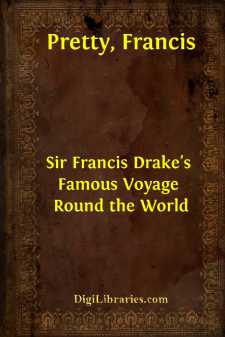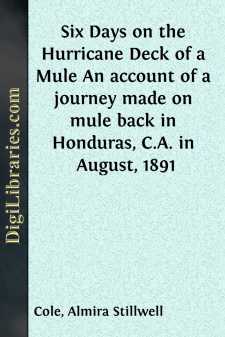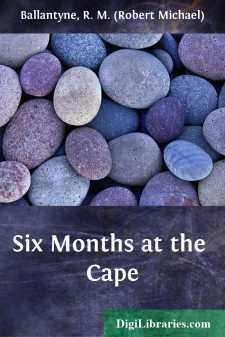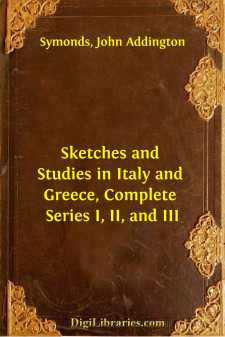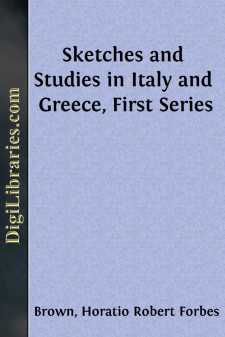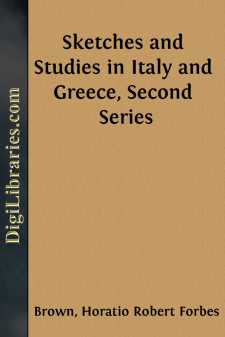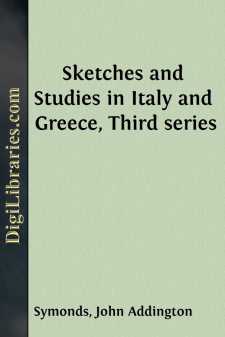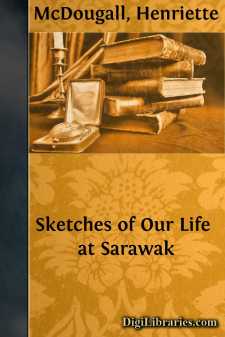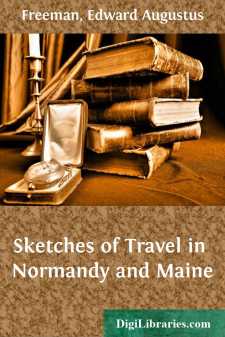Travel
- Africa 29
- Alaska 3
- Asia 46
- Australia & Oceania 26
- Canada 31
- Caribbean & West Indies 5
- Central America 1
- Europe 151
- General 39
- Maps & Road Atlases 1
- Mexico 10
- Middle East 18
- Polar Regions 7
- Reference 11
- Restaurants 1
- Russia 6
- South America 16
- United States 71
Travel Books
Sort by:
by:
Francis Pretty
The 15th day of November, in the year of our Lord 1577, Master Francis Drake, with a fleet of five ships and barks, and to the number of 164 men, gentlemen and sailors, departed from Plymouth, giving out his pretended voyage for Alexandria. But the wind falling contrary, he was forced the next morning to put into Falmouth Haven, in Cornwall, where such and so terrible a tempest took us, as few men have...
more...
Last spring I almost learned to ride a bicycle. Those who have had a similar struggle will correctly estimate the exact value of that word almost. I was laboring under peculiar difficulties, for I was a whilom inmate of one of those sacred institutions—a young ladies' boarding-school,—where any infringement upon the Spartan law of dignity would have been looked upon as less pardonable than a...
more...
I.The Voyage of the Hampshire. Voyage to Australia has in these days become so ordinary an affair that it may seem to require an apology to attempt to describe one, but a voyage in a sailing ship is so different from that in a steamer that it may interest some people. It is, as a rule, only those who go abroad for their health who prefer a sailing ship, on account of the great length of the voyage, in...
more...
“A Life on the Ocean Wave.” South Africa. Dear Periwinkle,—Since that memorable, not to say miserable, day, when you and I parted at Saint Katherine’s Docks, (see note 1), with the rain streaming from our respective noses—rendering tears superfluous, if not impossible—and the noise of preparation for departure damaging the fervour of our “farewell”—since that day, I have ploughed with...
more...
Of all the joys in life, none is greater than the joy of arriving on the outskirts of Switzerland at the end of a long dusty day's journey from Paris. The true epicure in refined pleasures will never travel to Basle by night. He courts the heat of the sun and the monotony of French plains,—their sluggish streams and never-ending poplar trees—for the sake of the evening coolness and the gradual...
more...
THE LOVE OF THE ALPS Of all the joys in life, none is greater than the joy of arriving on the outskirts of Switzerland at the end of a long dusty day's journey from Paris. The true epicure in refined pleasures will never travel to Basle by night. He courts the heat of the sun and the monotony of French plains,—their sluggish streams and never-ending poplar trees—for the sake of the evening...
more...
RAVENNA The Emperor Augustus chose Ravenna for one of his two naval stations, and in course of time a new city arose by the sea-shore, which received the name of Portus Classis. Between this harbour and the mother city a third town sprang up, and was called Cæsarea. Time and neglect, the ravages of war, and the encroaching powers of Nature have destroyed these settlements, and nothing now remains of...
more...
FOLGORE DA SAN GEMIGNANO Students of Mr. Dante Gabriel Rossetti's translations from the early Italian poets (Dante and his Circle. Ellis & White, 1874) will not fail to have noticed the striking figure made among those jejune imitators of Provençal mannerism by two rhymesters, Cecco Angiolieri and Folgore da San Gemignano. Both belong to the school of Siena, and both detach themselves from...
more...
CHAPTER I. Nearly thirty years ago I published a little book of "Letters from Sarawak, addressed to a Child." This book is now out of print, and, on looking it over with a view to republication, I think it will be better to extend the story over the twenty years that Sarawak was our home, which will give some idea of the gradual progress of the mission. This progress was often unavoidably...
more...
PREFACE "Beyond doubt the finished historian must be a traveller: he must see with his own eyes the true look of a wide land; he must see, too, with his eyes the very spots where great events happened; he must mark the lie of a city, and take in, as far as a non-technical eye can, all that is special about a battle-field." So wrote Mr. Freeman in his Methods of Historical Study, and he...
more...


